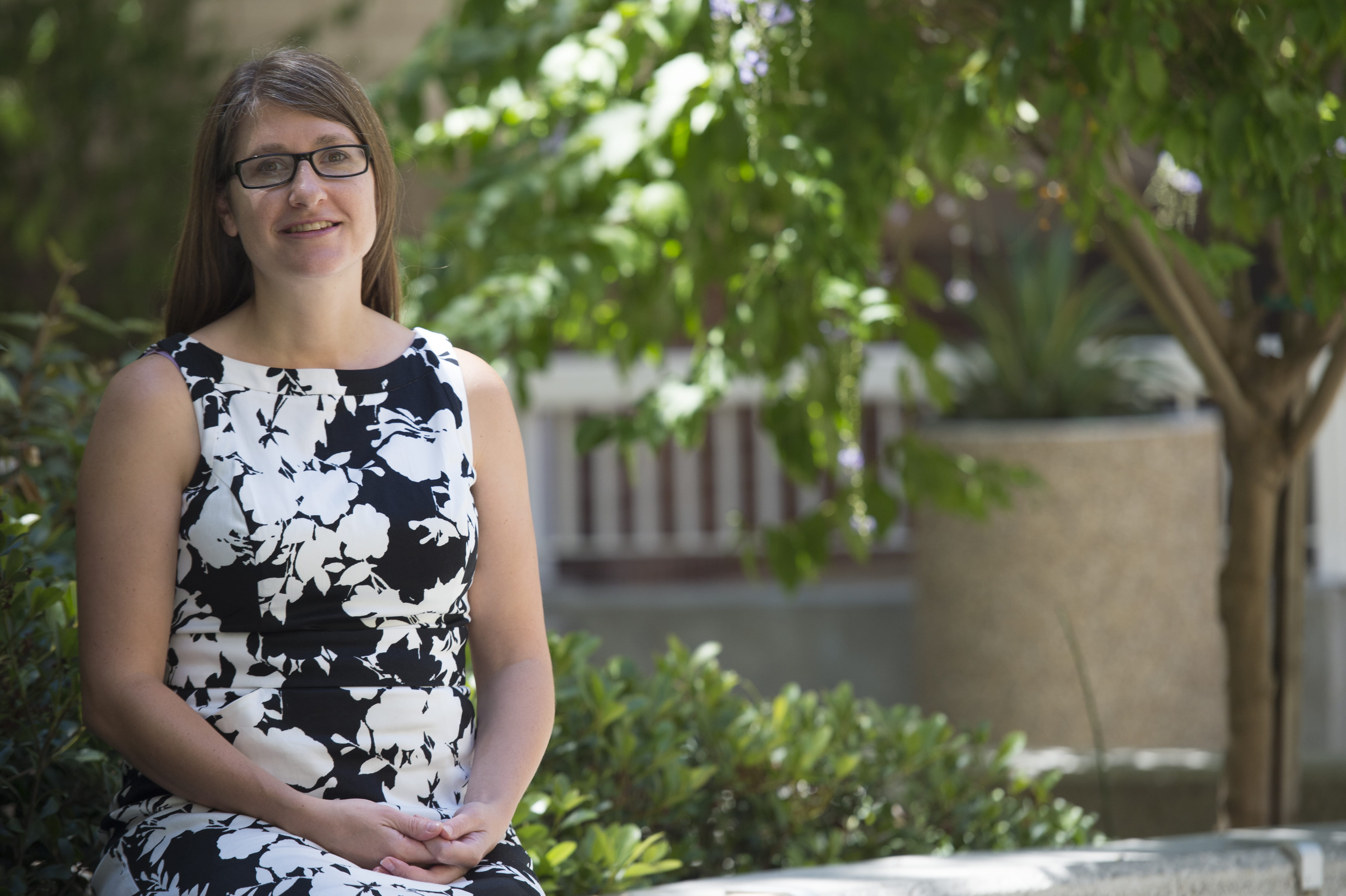UCI-led study links neighborhood affluence, positive birth outcomes
Mother’s social environment as well as individual risk factors influence infant health

Irvine, Calif., Oct. 3, 2017 — It’s not uncommon for new parents to relocate in search of neighborhoods with better schools, safer streets and healthier, more kid-friendly activities. But a new study led by University of California, Irvine sociologist Jennifer Kane has found that living in such neighborhoods before a baby is born protects against the risks of poor birth outcomes.
Published online this month in SSM – Population Health, the research shows that having highly educated, wealthy neighbors reduces an expectant mother’s risk of delivering a low-weight or preterm baby – health markers that can be associated with neurodevelopmental problems, language disorders, learning disabilities and poor health later in life.
The study is the first to look at how both affluent and disadvantaged neighborhoods affect newborn health; past studies have only explored the impact of disadvantaged neighborhoods.
“We suspected that affluence was a key social determinant of birth outcomes because, according to sociological theory, neighborhood affluence is not simply the absence of disadvantage, but rather a unique and independent attribute that plays an important role in contributing to an individual’s well-being,” Kane said. “This is because neighborhood affluence is thought to signal the presence of locally based community organizations that can meet the needs of all residents – health-related and otherwise – regardless of one’s own socioeconomic resources.”
The findings are based on the electronic birth certificates of more than 1.2 million babies born in New Jersey between 1996 and 2006. The researchers were able to batch the records by neighborhood and analyze birth outcomes against census data and indices reflecting affluence and disadvantage for different tracts.
They found that for white, black, Asian and Hispanic mothers, neighborhood affluence was linked to fewer preterm or low-birth-weight babies across the board, more so for white mothers. Disadvantaged neighborhoods – generally thought to be racially segregated areas with higher crime and lower education levels – were not significantly associated with poor birth outcomes among white and Asian mothers but were among black and Hispanic mothers.
One behavior detrimental to newborns’ health was discovered to cross all ZIP codes: Prenatal smoking – even among white women in more affluent neighborhoods – correlated directly to an increase in low-birth-weight babies.
“Our findings draw attention to the effects of social environments, not just individual-level risk factors, on birth outcomes,” Kane said. “Now that we know affluence is a key part of the story, more resources should be invested in unpacking the mechanisms through which neighborhood affluence influences birth outcomes – an endeavor that will likely uncover concrete strategies to improve infant health.”
Co-authors are Gandarvaka Miles and Jennifer Yourkavitch of the University of North Carolina at Chapel Hill and Katherine King of Duke University. The Eunice Kennedy Shriver National Institute of Child Health and Human Development supported the research (grant K99/R00 HD075860).
The study will appear in the December print edition of SSM – Population Health.
About the University of California, Irvine: Founded in 1965, UCI is the youngest member of the prestigious Association of American Universities. The campus has produced three Nobel laureates and is known for its academic achievement, premier research, innovation and anteater mascot. Led by Chancellor Howard Gillman, UCI has more than 30,000 students and offers 192 degree programs. It’s located in one of the world’s safest and most economically vibrant communities and is Orange County’s second-largest employer, contributing $5 billion annually to the local economy. For more on UCI, visit www.uci.edu.
Media access: Radio programs/stations may, for a fee, use an on-campus ISDN line to interview UCI faculty and experts, subject to availability and university approval. For more UCI news, visit wp.communications.uci.edu. Additional resources for journalists may be found at communications.uci.edu/for-journalists.